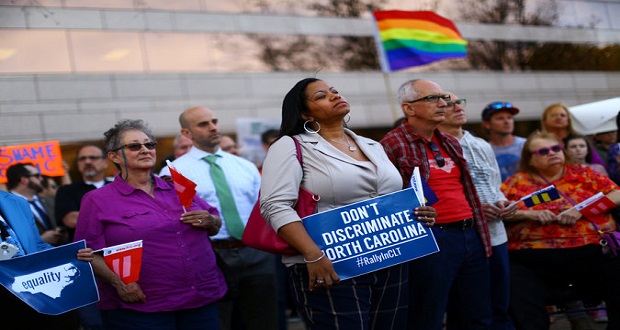
Photo credit: Travis Dove for The New York Times
I am in North Carolina this week on business. Both of my adult children live in North Carolina but I must admit that I am uncomfortable being here. I feel like maybe I should be boycotting North Carolina as a symbolic gesture to protest the passing of the HB2 legislation which essentially allows discrimination against the LGBT community.
Apparently it all started when in February Charlotte passed an ordinance protecting the rights of LGBT citizens. The state legislature reacted swiftly, passing an opposing state law that would make the Charlotte legislation null and void. The State law blocks cities and local governments from passing antidiscrimination measures to protect gay and transgender people. The new law did more than repeal the Charlotte ordinance. It made the State’s law on antidiscrimination—which covers race, religion, national origin, color, age, biological sex and disabilities—all inclusive, which means that cities and local governments can’t expand “employment” or “public accommodations” protections to others, such as on the basis of sexual orientation or gender identity. The main argument seems to be that such a law is necessary because transgender people should not be allowed to use the bathroom facilities that match their gender identity. The lawmakers who passed this law think it would be some type of threat to those who are not transgender.
Just as swiftly as the North Carolina legislature passed the “bathroom bill”, the rest of the country responded in opposition. PayPal has rescinded its plans to open an office in Charlotte that would employ about 400 people; DC, Boston and Portland will not allow any business travel to North Carolina; 90 chief executives and business leaders sent a letter to governor Pat McCrory calling the bill discriminatory.
Even so Mississippi has passed a religious freedom bill that has been called discriminatory against LGBT citizens and South Carolina is contemplating similar legislation to that just passed in North Carolina.
We can only be hopeful that the growing economic sanctions will sway the lawmakers to repeal these regressive laws.


















